IAN Whitcomb sounded more like British vaudeville than British invasion. He formed a group called Bluesvillee in Dublin, never really caught on in the UK, but hit #8 on the American pop charts in that golden year of 1965 with a very strange song called “You Really Turn Me On.” Historical footnote, a few people were turning on at that time, but that weren’t using the term yet.
WIKI bio stuff:
Their next record release, again credited as Ian Whitcomb & Bluesville, "You Turn Me On", was largely improvised at the end of a recording session in Dublin. Released as a single on the Tower label, it reached Billboard's number 8 spot in July 1965 – it was the first Irish-produced record to reach the US charts[3] – but did not chart in Britain.[4][6] During his summer vacation in 1965, Whitcomb went to America to appear on such television programs as Shindig, Hollywood A Go-Go and American Bandstand. Whitcomb played the Hollywood Bowl with The Beach Boys in 1965 and then toured with The Rolling Stones, The Kinks, and Sam the Sham and the Pharaohs.[3]
"N-E-R-V-O-U-S!", Whitcomb's next release, was recorded in Hollywood and reached No. 59 in Billboard and No. 47 in Cash Box. He returned to Dublin for his history finals and received a BA degree. In 1966 he turned to early popular song: His version of a 1916 Al Jolson comedy number, "Where Did Robinson Crusoe Go with Friday on Saturday Night?" was a West Coast hit, reviving the ukulele before the emergence of Tiny Tim.[7]
After making four albums for the Tower label, Whitcomb retired as a pop performer, later writing that he "wanted no part of the growing pretentiousness of rock with its mandatory drugs and wishy-washy spiritualism and its increasing loud and metallic guitar sounds."[3] However, in 1969 he produced Mae Weston her album called Great Balls of Fire for MGM Records. He then returned to the UK and was commissioned by Penguin Books to write a history of pop music, After the Ball, published in 1972. He appeared on several BBC TV shows and was an early presenter of the BBC show The Old Grey Whistle Testin 1971.[3]
Whitcomb settled in California in the late 1970s. He starred in and wrote L.A.–My Home Town (BBC TV; 1976) and Tin Pan Alley (PBS; 1974). He wrote Tin Pan Alley, A Pictorial History (1919–1939) and a novel, Lotusland: A Story of Southern California, published in 1979. He also provided the music for a documentary film, Bugs Bunny: Superstar (UA), which was narrated by Orson Welles. For Play-Rite Music he cut 18 piano rolls that were included in an album, Pianomelt. His other albums reflected his research into the genres of ragtime, Tin Pan Alley, vaudeville and music hall. These, beginning with Under the Ragtime Moon (1972), were released on several record labels including Warner Bros. Records, United Artists and Decca Records. During that time he also wrote and produced singles for Warner Bros.' country division, most notably "Hands", a massage parlour story, and "A Friend of a Friend of Mine".
In the 1980s Whitcomb published Rock Odyssey: A Chronicle of the Sixties: Ian Whitcomb, a memoir of the 1960s and described by The New York Times as the best personal account of this period. He also published Ragtime America (Limelight Editions, 1988), followed by a memoir of life as a British expatriate in Los Angeles, Resident Alien (Century, 1990). He wrote extensively on music, culture, and books for a diverse range of magazines including Radio Times, the Los Angeles Times, The Daily Telegraph, The London Magazine. He produced a British documentary on black music, Legends of Rhythm and Blues (part of the series Repercussions, made by Third Eye Productions for Channel Four in 1984).[3] He also hosted a radio show in Los Angeles for 15 years, taking the program from KROQ-FM to KCRW and finally to KPCC-FM.[8]
He continued recording, producing a series of CD collections: Treasures of Tin Pan Alley, Al Jolson songs, and Titanic- Music As Heard On The Fateful Voyage. His liner notes were nominated for a Grammy. His songs are heard in the films Bloody Movie (1987), Cold Sassy Tree (1989), Encino Man (1992), Grass(1999), Man of the Century (1999), Stanley's Gig (2000), After the Storm (2001), The Cat's Meow (2002), Last Call (2002), Sleep Easy, Hutch Rimes (2002), Lonesome Jim (2005) and Fido (2006).
We lost Whitcomb at the age of 78 in 2020, not from Covid but from complications following a stroke in 2012. For his entire life he remained a champion of music, a scholar of vinyl and rare recordings, and a showman in the classic sense.
And it’s pretty difficult to not smile when you hear his signature tune.
Come on now honey, you know you really turn me on
Come on now honey, you know you really turn me on
And when, and when you do
Uh huh, huh, huh, uh, uh, that's my song
Come on now baby, come on and do the jerk with me
Come on now honey, come on and do the jerk with me
And if, if you do
Uh huh, huh, huh, uh, uh, that's my song
Come on now baby, you know you really turn me on, ah
Come on now honey, you know you really turn me on, ah, yeah
And when, and when you do
Uh huh, huh, huh, uh, uh, that's my song
Let's go!

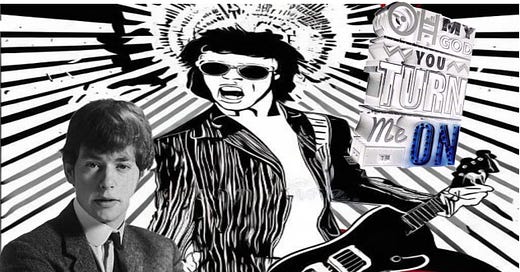
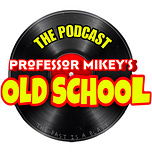


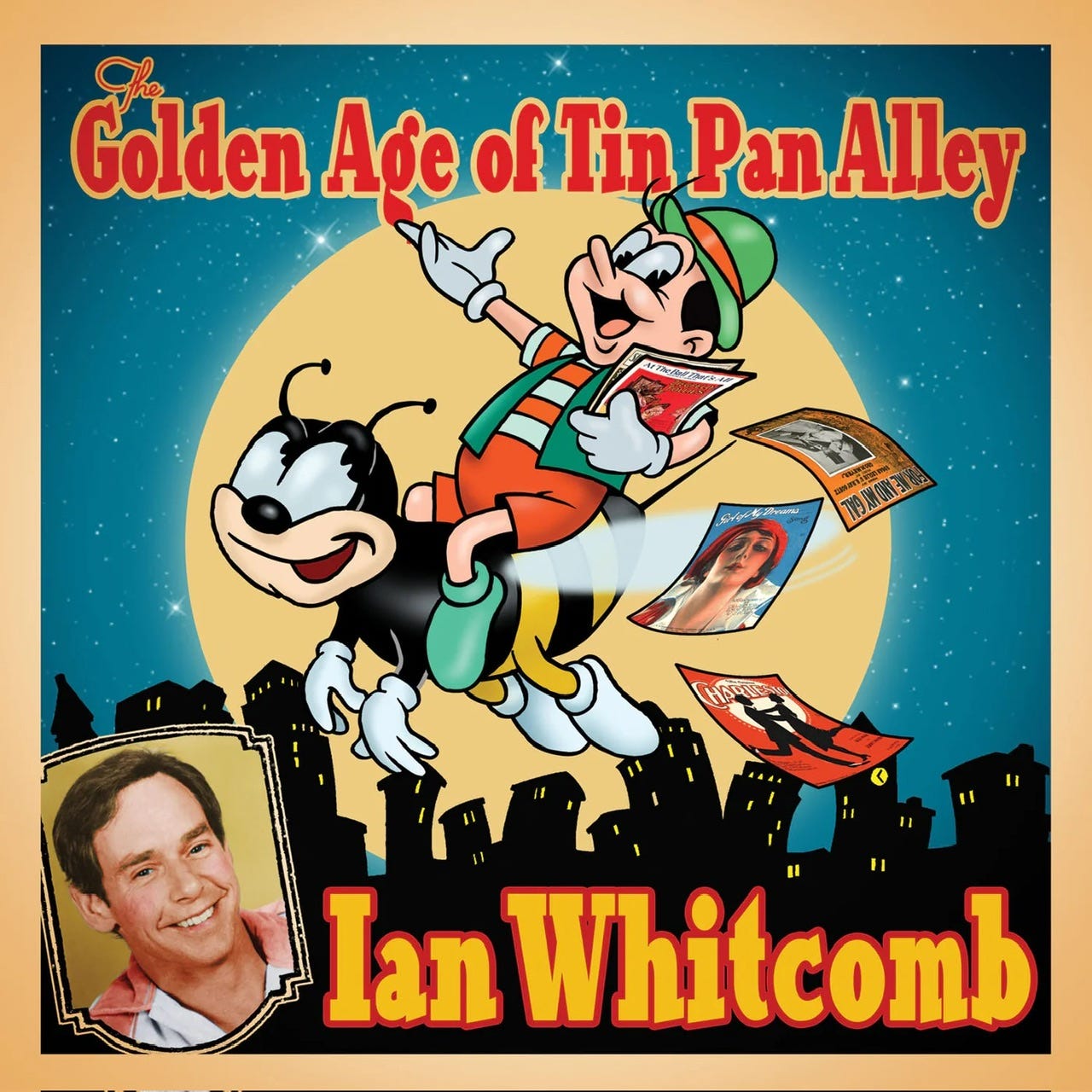
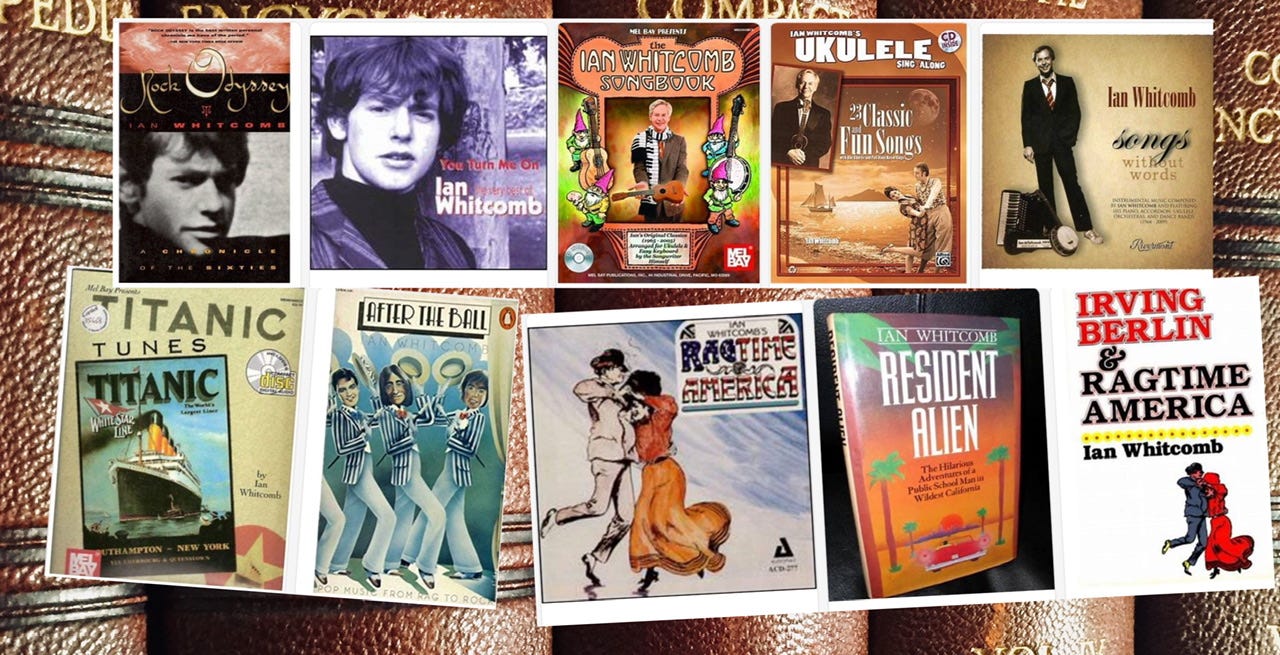
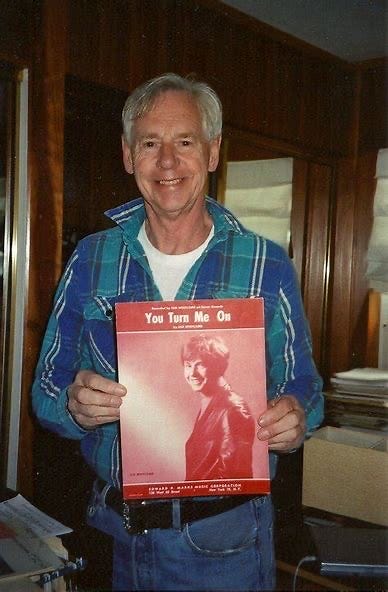
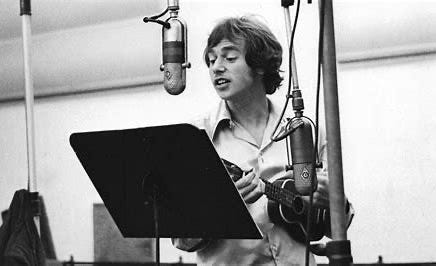




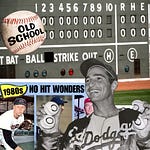
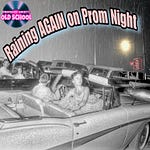
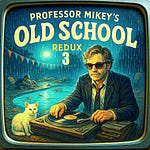


Share this post